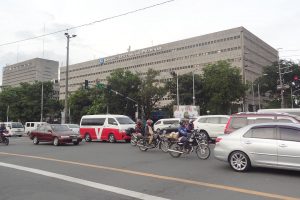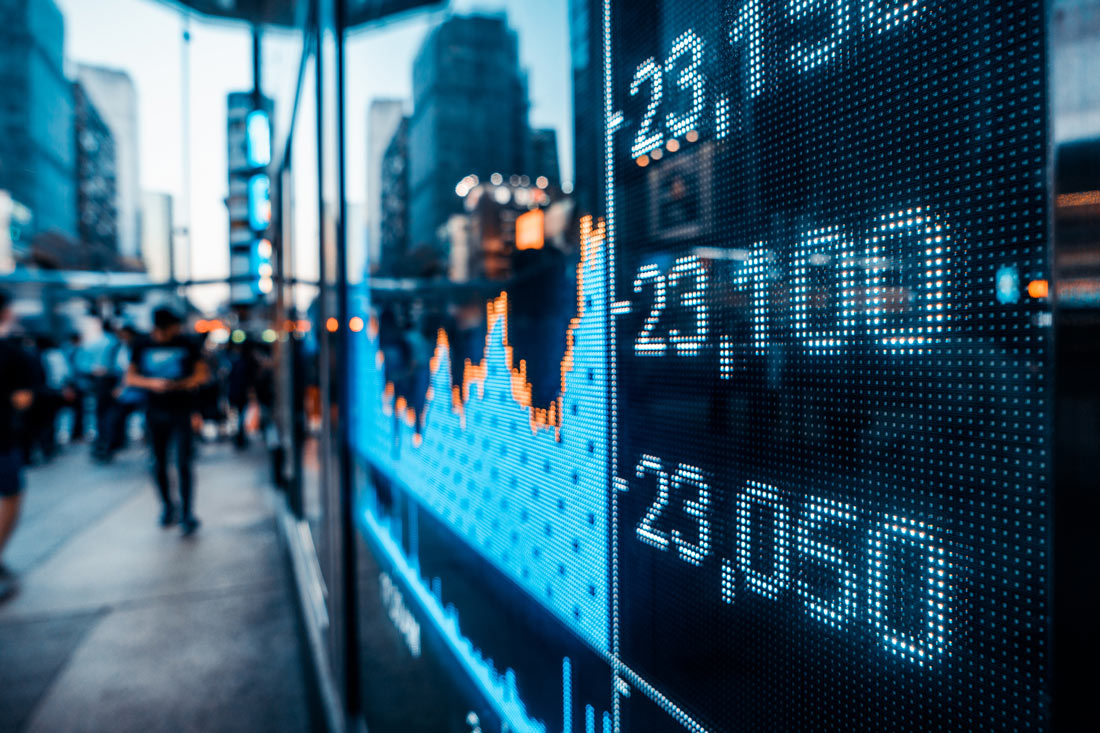BSP may raise rates by 50 bps next week

THE UNITED STATES Federal Reserve’s aggressive tightening will put more pressure on the Bangko Sentral ng Pilipinas (BSP) to consider a bigger rate hike at its meeting next week.
The Federal Reserve on Wednesday raised interest rates by 75 basis points (bps), the largest hike since 1994, to curb soaring inflation. Fed Chair Jerome H. Powell also signaled a steep increase in their next meeting.
“Such a more substantial monetary tightening by the US Fed could affect the BSP’s announced stance of gradual normalization of monetary policy,” former BSP Deputy Governor Diwa C. Guinigundo said in a Viber message on Thursday.
The BSP is poised to raise its key interest rate at its next two meetings to address inflation, incoming BSP Governor Felipe M. Medalla said during a virtual roundtable discussion with BusinessWorld editors on Tuesday.
However, Mr. Medalla, a current Monetary Board (MB) member, signaled that the pace of subsequent tightening will be gradual as he ruled out hikes higher than 25 bps.
“While it’s true that signaling such contractionary stance should provide some forward guidance on the BSP’s policy intent and therefore inflation expectation, the size of the Fed’s adjustment could somehow enlarge the expectation by the market of the BSP’s future move,” Mr. Guinigundo said.
Rizal Commercial Banking Corp. (RCBC) Chief Economist Michael L. Ricafort said higher Fed rates may lead to further upward adjustments in the local policy rate from the current 2.25%.
“Thus, there is a chance of a local policy rate hike of +0.50 on the next rate-setting meeting on June 23, 2022 and more local policy rate hikes for the rest of the year, partly to maintain a comfortable interest rate differential with the US, to account for the comfortable spreads/interest rate differentials/risk premium — a dilemma faced by many other countries/central banks around the world,” Mr. Ricafort said in a note.
Bank of the Philippine Islands (BPI) in a press release said it now anticipates a 50-bp hike at the next MB meeting.
“We now expect a 50-bp hike from the BSP at its June meeting given the latest move of the Fed. Hiking the policy rate gradually in contrast to what the Fed is doing may exacerbate the headwinds affecting the Philippine economy,” BPI said.
“A very narrow gap between US and local interest rates will likely exert more pressure on the peso, which will eventually translate to more inflation.”
The peso weakened by 3.5 centavos on Thursday as it closed at P53.47 versus the dollar from its P53.435 finish on Wednesday
Incoming Socioeconomic Secretary Arsenio M. Balisacan said the country has to adjust to global policy tightening, and be more mindful of any shocks.
“If interest rates are rising outside of our country, we have to adjust to that because if you don’t, capital will move out of the country,” he said during a roundtable with BusinessWorld editors on Thursday.
“I think we don’t think macroeconomic fundamentals are that bad compared to other countries. We can withstand these shocks. We have to be mindful, always alert, adjusting to the shocks. Failure to do so will be damaging to the economy.”
MORE SELLING?Meanwhile, the benchmark Philippine Stock Exchange index (PSEi) rose by 73.59 points or 1.16% to close at 6,393.01 on Thursday, recovering from Wednesday’s bloodbath.
Philippine Stock Exchange, Inc. President and Chief Executive Officer Ramon S. Monzon told ANC that the Wednesday’s drop was “in anticipation of what kind of rates the Fed will impose.”
“We’ve been in worse situations and we’ve bounce back to a higher level. I have no doubts what is happening is temporary,” he said.
In a Viber message, AAA Southeast Equities, Inc. President William M. Cabangon said the Fed’s tightening cycle is pulling down global markets, including the PSE.
“I expect selling to continue over the next few months as valuations continue to readjust lower in line with rising interest rates. Although stocks are cheap relative to past earnings, the uncertainty over future earnings due to inflation and slowdown concerns do not make forward-looking valuations very attractive,” Mr. Cabangon said. — with reports from Keisha B. Ta-asan and Luisa Maria Jacinta C. Jocson




